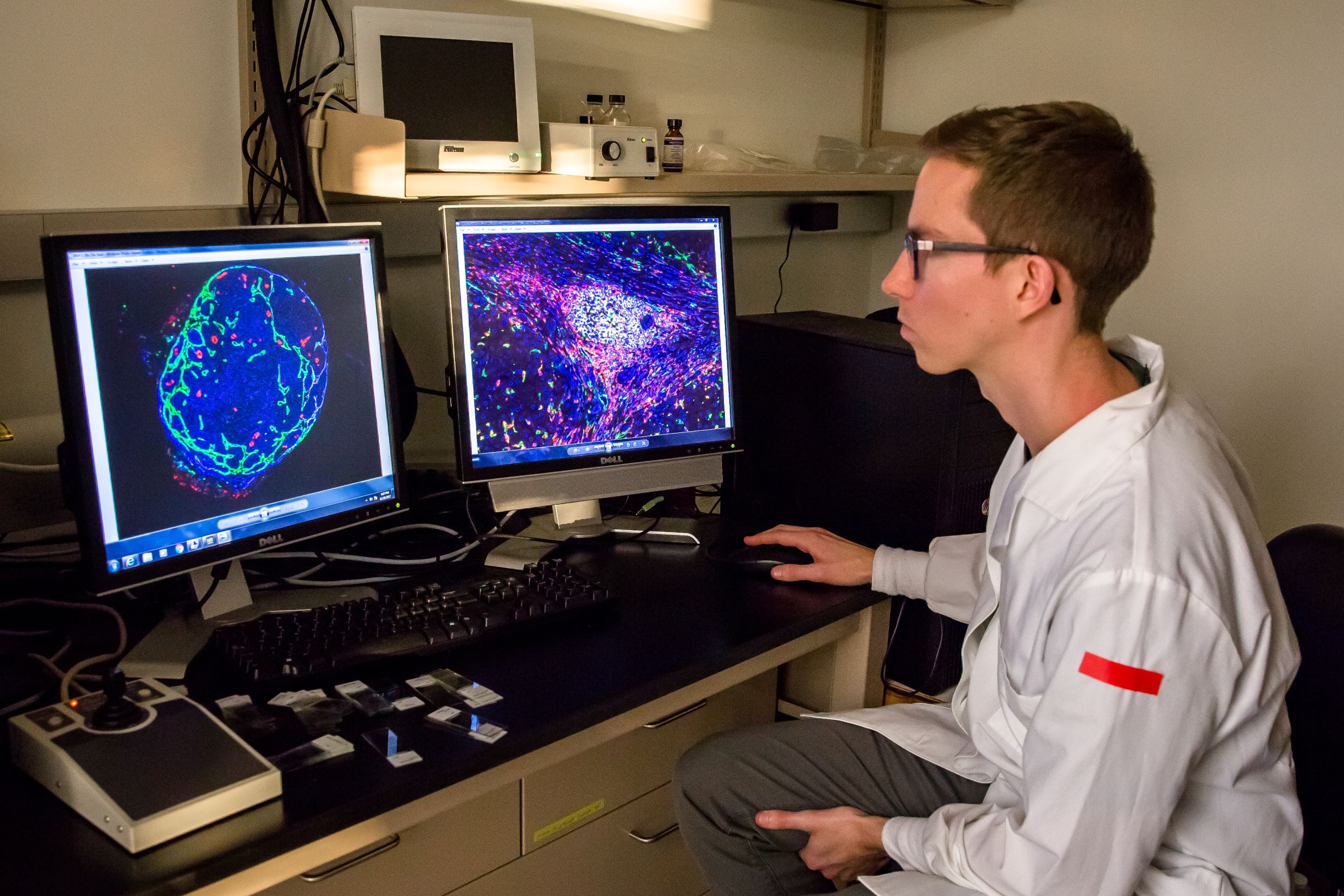FACILITIES
Program faculty and students have access to a number of “centers” of research excellence, one of the most impressive being the ultra high field 900 MHz NMR, one of the few machines of this caliber in the country.
Interdisciplinary Facilities
The Structural Biology Core is complemented by 500 and 600 MHz NMRs, as well as by a newly updated robotic X-Ray crystallography facility and by extensive mass spectrometry capabilities. Soon, this will be expanded by a state of the art Cryo-electron
microscopy facility making the structural biology capabilities of the campus truly world class.
Pharmacology Training Program students and faculty have access to extensive imaging facilities to pursue cell biological and optogenetics approaches to pharmacological and cell biological questions. Among the more recent acquisitions are instruments capable of super-resolution imaging (STED, 3-D STORM/PALM and nSPIRO; if you’re curious, look them up!!).
Program faculty and students also have access to a functional genomics facility, numerous gene array cores and deep sequencing capabilities, bioinformatics and other statistical analysis cores, as well as stem cell (including clinical) and transgenic animal cores. These new, cutting-edge technological facilities and the integration of molecular structure and genomic research coupled with the molecular biological, cellular, organ, whole animal research and human protocols makes our Training Program unique. The interactive components of our Program allow the students to see clearly the value of multi-disciplinary approaches to pharmacologic research, while at the same time providing them with state-of-the-art tools with which to explore their hypotheses. The inter-disciplinary interests of our Program faculty continue to encourage students to be broad-based in their career training. The summaries of the current trainee’s research efforts provide ample evidence of the melding of several technical skills by our trainees used to address their thesis research.
Colorado Clinical and Translational Sciences Institute
The Colorado Clinical & Translational Sciences Institute (CCTSI) is the academic home to help transform the clinical and translational research and training efforts at the University of Colorado Anschutz Medical Campus and affiliated institutions. The CCTSI was created in 2008 with funding from the Clinical and Translational Science Award (CTSA) initiative of the National Institutes of Health (NIH).
Click here for more information about CCTSI.
Research Core Facilities
The University of Colorado School of Medicine is fully equipped with specialized instrumentation and core facilities required to conduct contemporary biomedical investigations. Core facilities include:
- Advanced Light Microscopy Core
- Biological Mass Spectrometry Facility
- Biostatistics and Bioinformatics Shared Resource (BBSR)
- Colorado Translational Research Imaging Center (C-TRIC)
- Cytogenetics Service
- Flow Cytometry Shared Resource Facility
- Genomics and Microarray Core
- Human Immune Monitoring Shared Resource (HIMSR)
- NMR Structural Biology Shared Resource Facility
- Peptide and Protein Chemistry Core Facility
- Protein Production/MoAB/Tissue Culture Core
- Structural Biology Core
- Transgenic and Gene Targeting Core
- Xray Crystallography Structural Biology Shared Resource
Click here for more information about research centers and institutes.
